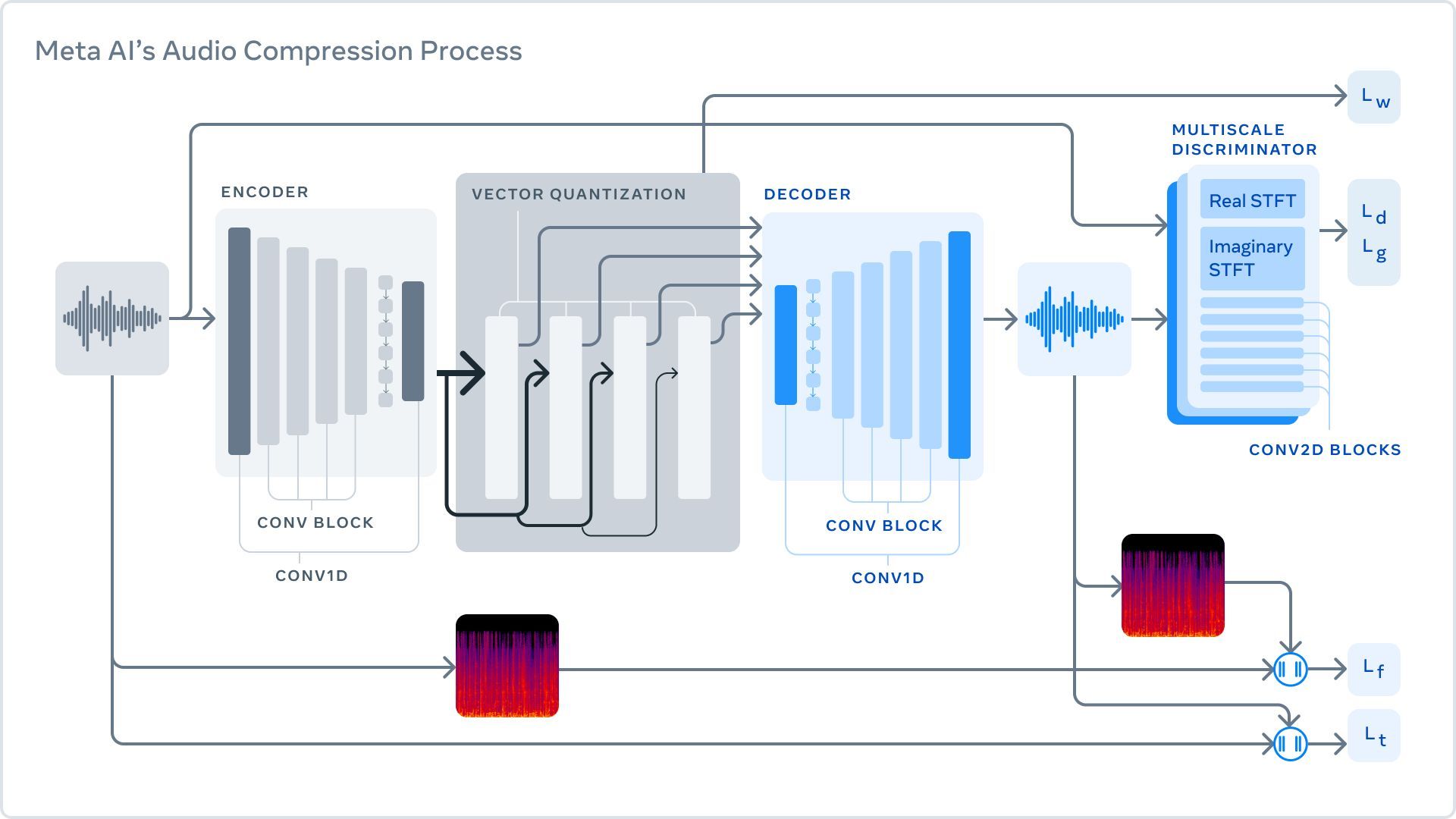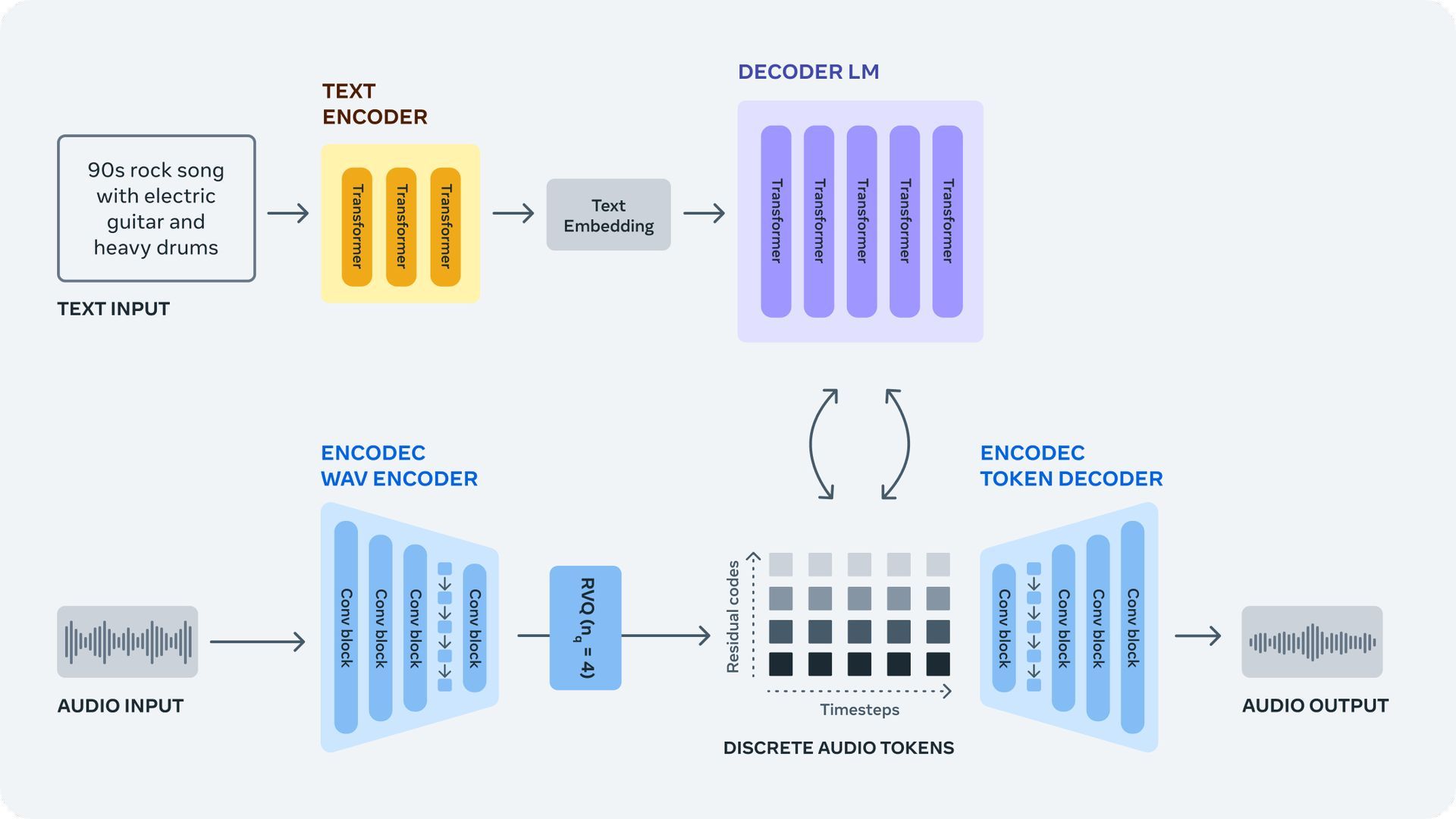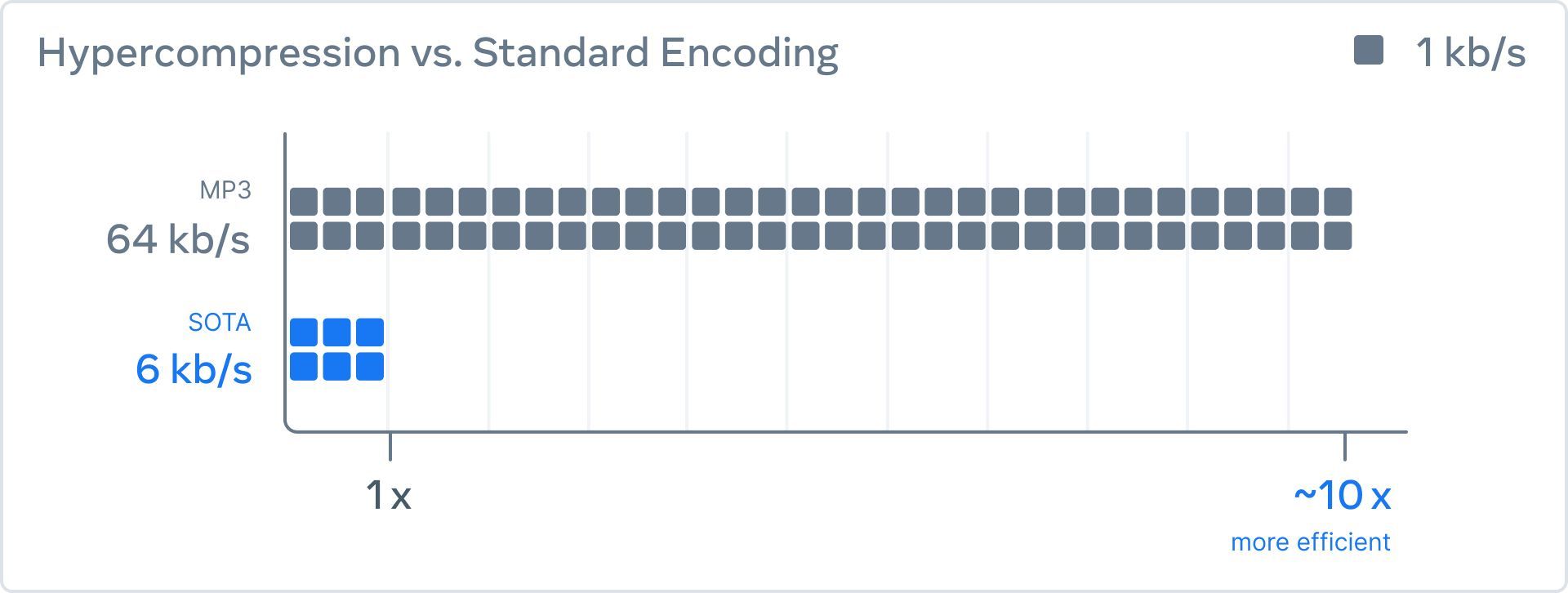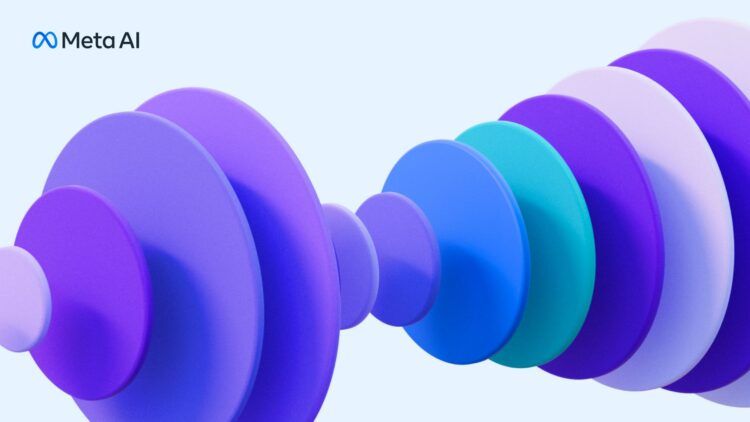The tech giant formerly known as Facebook has just unveiled the Meta AudioCraft AI music generator.
The groundbreaking suite of generative AI tools for audio and music generation, this open-source platform allows content creators to produce high-quality sound effects and music by simply inputting text descriptions. With AudioCraft, the possibilities for virtual orchestras, ambient soundscapes, and catchy melodies are virtually limitless.
The AudioCraft suite comprises three core components:
- AudioGen: This tool excels at generating diverse audio effects and soundscapes. From a dog barking to footsteps on a wooden floor, AudioGen can effortlessly create realistic audio experiences.

- MusicGen: Tailored explicitly for music generation, MusicGen can compose melodies and full musical compositions from text prompts. Whether it’s a pop dance track with tropical percussions or an emotional piano piece, MusicGen can bring any musical idea to life.
- EnCodec: A neural network-based audio compression codec, EnCodec allows for improved music generation with minimal artifacts. By compressing and reconstructing audio signals with high fidelity, EnCodec serves as a crucial backbone for AudioCraft’s audio generation capabilities.

Meta’s commitment to open-source initiatives is evident in the release of AudioCraft under the MIT License. This move aims to democratize AI audio tools, providing researchers and practitioners with accessible resources to experiment and push the boundaries of generative audio technology.
Meta AudioCraft AI music generator’s potential and ethical considerations
Although generative AI models have made impressive strides in image and text synthesis, audio generation has lagged behind. While projects like OpenAI’s Jukebox and Google’s MusicLM have emerged, AudioCraft represents a significant leap forward in terms of simplicity, accessibility, and potential applications.
One area of focus for Meta has been the ethical usage of data for training models. Addressing concerns about potential biases and misuse, Meta states that MusicGen was trained on a diverse dataset comprising 20,000 hours of music owned by Meta or specifically licensed for research purposes. This transparency and openness aim to empower the research community to address potential bias and foster responsible AI practices. Here are some examples that Meta shared:
Text Prompt: Whistling with wind blowing
Text Prompt: Sirens and a humming engine approach and pass
Text Prompt: Pop dance track with catchy melodies, tropical percussions, and upbeat rhythms, perfect for the beach
Text Prompt: Earthy tones, environmentally conscious, ukulele-infused, harmonic, breezy, easygoing, organic instrumentation, gentle grooves
With AudioCraft now available to the public, open-source developers can explore integration possibilities, enabling the creation of easy-to-use generative audio tools in the future. Meta’s dedication to transparency and responsibility in AI research positions Meta AudioCraft AI music generator as a powerful tool for musicians, game developers, content creators, and businesses seeking to enhance their creative assets and experiences.

The future of audio generation
As generative AI evolves, the potential for quicker iteration and feedback during the early stages of creative processes becomes increasingly exciting. From large-scale game developers crafting immersive virtual worlds to amateur musicians seeking inspiration, Meta AudioCraft AI music generator promises to revolutionize the human-computer interaction landscape through auditory and multi-modal interfaces.
With its release, the company hopes to see a surge in innovative applications of Meta AudioCraft AI music generator. From enriched bedtime story readings with immersive sound effects to novel musical instruments akin to synthesizers, the creative possibilities appear boundless. As the research community builds upon AudioCraft’s foundations, it may usher in a new era of AI-driven audio generation, transforming how we produce and experience audio and music in the digital age.
Featured image credit: Meta





